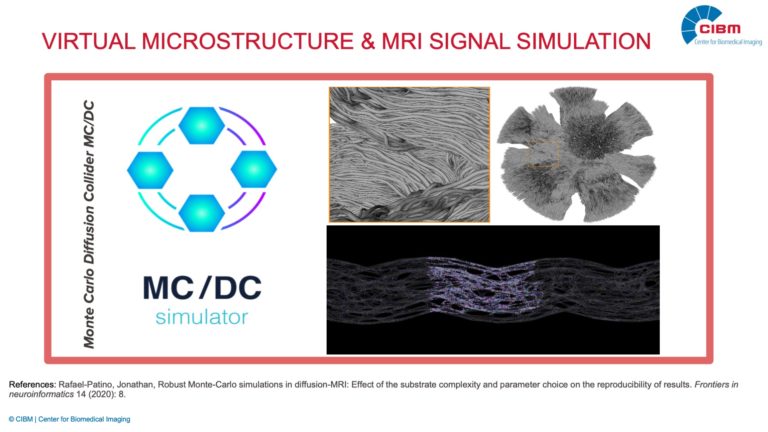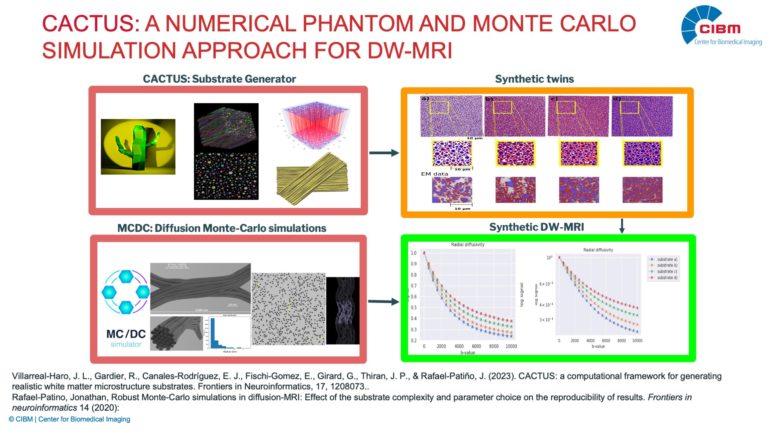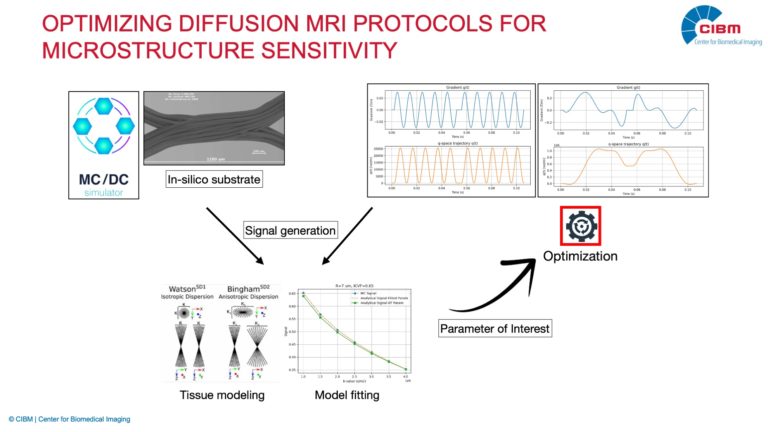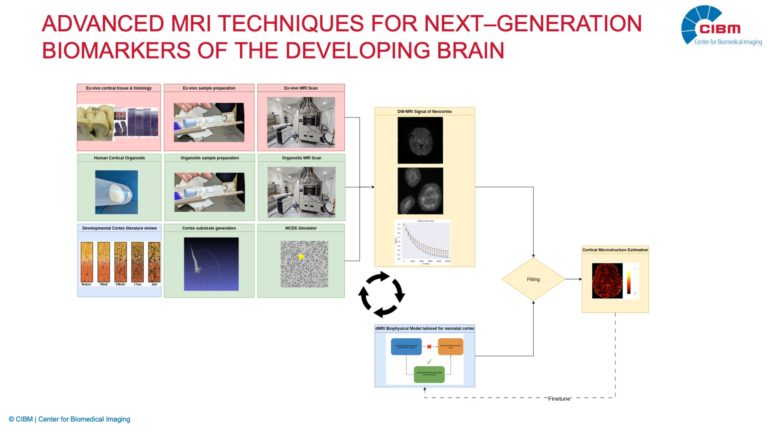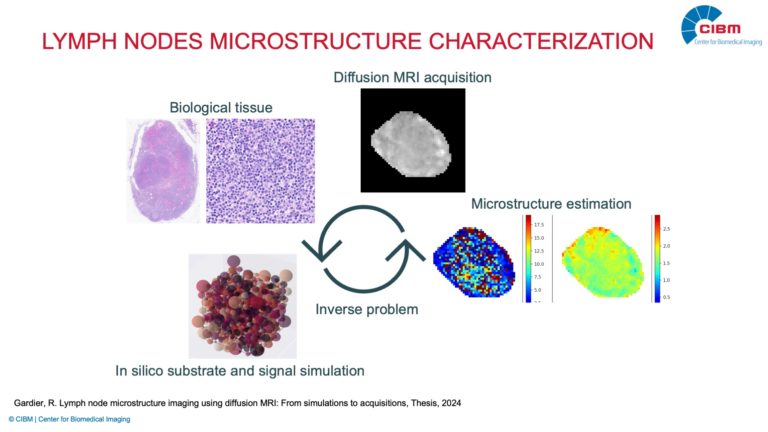White Matter Microstructure Imaging with CACTUS: A Numerical Phantom and Monte Carlo Simulation Approach for DW-MRI
Description: The CACTUS Framework for White Matter Microstructure Imaging aims to create biologically realistic computational substrates of brain and other tissues, combined with high-fidelity Monte Carlo simulations of diffusion MRI. By simulating water diffusion and MR signal formation under advanced acquisition protocols, this project provides a robust platform to design, test, and validate new imaging models with direct applications in both neuroscience and oncology.
Investigator: J.-P. Thiran, J. Rafael-Patiño (EPFL)


